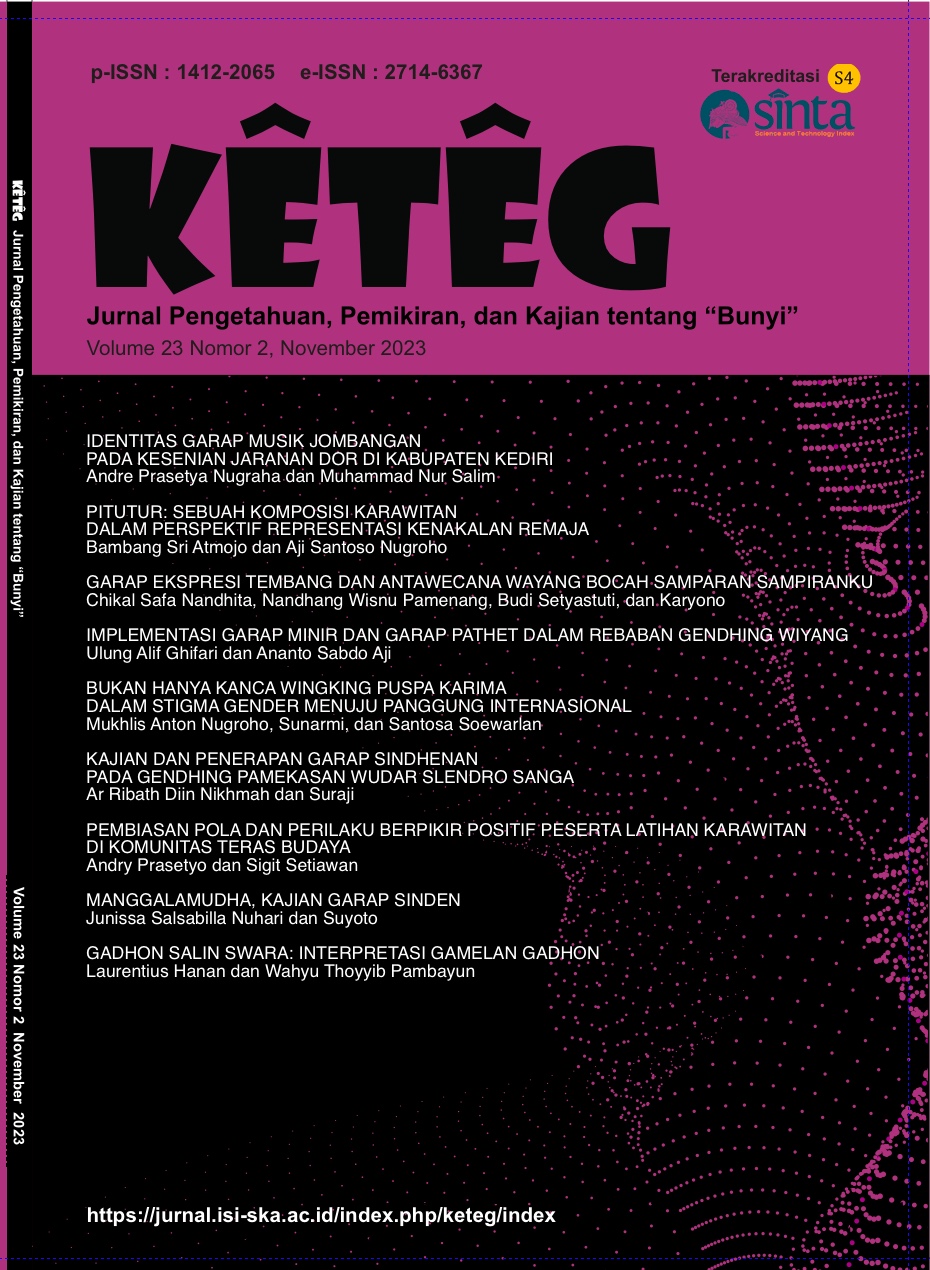BUKAN HANYA KANCA WINGKING PUSPA KARIMA DALAM STIGMA GENDER MENUJU PANGGUNG INTERNASIONAL
DOI:
https://doi.org/10.33153/keteg.v23i2.5732Abstract
The rapid development of the digital era has changed the view of women's roles that were previously confined to household responsibilities, and now the stigma is starting to erode. In Javanese culture, there is the concept of "kanca wingking" which refers to the role of women at home to perform tasks such as cleaning, cooking, taking care of children, and so on. However, with the advent of the women's emancipation movement, the stigma has begun to fade as many women have careers. The same thing happened in the traditional music scene in West Java. Gender stigma also emerged by prohibiting women to play the Rebab instrument in Sundanese karawitan. This paper discusses how Puspa Karima, whose members are all women, tries to change the gender stigma in Sundanese karawitan performances. The method used is qualitative as a research procedure that produces descriptive data in the form of written or spoken words from people through the interview stage. In addition, data can also be collected through observation of people's behavior in the field on the object of research. The results of this paper show that Puspa Karima not only succeeded in changing the gender stigma that applies to Sundanese karawitan performances, but Puspa Karima actually succeeded in bringing gender issues in the case of karawitan art to the international arena.
Keywords: Gender Stigma, Kanca Wingking, Women, Sundanese Karawitan
Downloads
Downloads
Published
Issue
Section
License
Copyright (c) 2024 Keteg: Jurnal Pengetahuan, Pemikiran dan Kajian Tentang Bunyi

This work is licensed under a Creative Commons Attribution-ShareAlike 4.0 International License.









